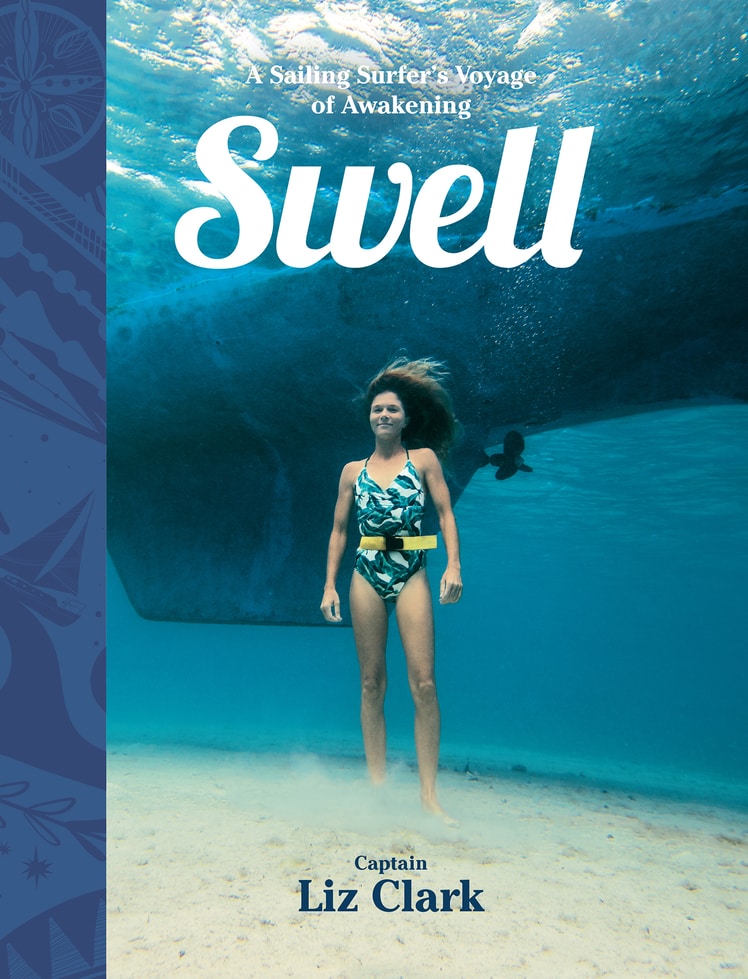Cigua-what?

The culprit of my ciguatera poisoning…a Kingfish I believe is it's English name?
After my recent ‘knockdown’ from ciguatera poisoning, I’ve tried to gather some information on the subject, mostly through local knowledge due to the extremely limited internet access here in the outer OUTER islands. As the symptoms dwindle now on Day 20 since the poisoning, I realize there is more to this occurrence than just another story to tell…
Ciguatera poisoning can be VERY serious. My case wasn’t nearly as bad as it gets, as some people go into a coma or even die, but what I went through was certainly nothing to laugh about. I was bedridden with severe muscular pain for 3 days, then in and out of bed with reoccurring pain off and on for another 6 days, and since then hindered by an incapacitating fatigue, all-over body itching, and reversal of hot/cold feelings in the nerve endings of my hands, feet, and face…Cold never felt so HOT!?
I’ve gathered from local elders in these outlying atolls (where I amazingly found a place that could haul Swell out of the water with a tractor for my quick jaunt to Cali), that ciguatera has been around for a long time. But in the last 10 years or so, the number of fish carrying this poison has dramatically increased. Why? Sadly, logic traces the cause back to human mishandling of our planet…

Swell on her way to dry land amongst the coconut trees for my trip back to Cali…I didn't get sick until I got back.
The microalgae that causes ciguatera thrives on coral that has been damaged or injured. The adverse effects of local development and rising sea temperatures and levels due to climate change upon the corals mean that more weak and damaged coral exists for this nasty dinoflagellite to flourish upon! In turn, more herbivorous reef fish are ingesting the algae and passing it up through the food chain where it bio-accumulates (like heavy metals do in fish) making larger reef predator fish such as barracuda and jacks prone to high levels of contamination in affected areas.
So, just don’t eat fish, right? Eating fish, for Polynesians, is about as essential as drinking water. Take away the main source of sustenance in the atoll regions (and all temperate seafood-dependent regions for that matter), and these people have a grave problem…There’s no Albertson’s down the street. For many in this area, the next meal is still swimming a few hours before mealtime. Local people are savvy to the ciguatera hotspots, but more and more often, a usually edible fish is contaminated in a normally uncontaminated area.
The fish that made me sick is eaten by the locals all the time, but for some reason this particular one I ate contained the poison…? I may have been because a big south swell was running at the time the fish was caught. It’s possible that it swam over into the lagoon with the whitewash from a more contaminated area…? But who knows…
Whatever the cause, the effect hit home hard this time! I’m feeling better everyday now as my body rids more and more of the toxins, but supplies of lentils are dwindling as eating any animal protein whatsoever (including eggs, milk, cheese) brings back the muscle aches and a flurry of all body itching! At least Swell is back in the water now, as adding mosquitos and no-nos to the list of irritating symptoms, and I was bordering on insanity!! :)
PS The fun stories are coming!




6 Comments
Bill Humphreys
July 25, 2011Hi Liz,
Its great to hear you are back on your feet. Please note, “Kingfish” and Barracuda are notorious for carrying ciguatera! Do not eat them ever again, as the effect is additive. Even a little will react badly as it will be added to the previous dosage. You may have been getting low dosages and finally this fish pushed you over the edge. I am so glad you didn’t go into a coma or worse. Its like playing with fire. A check of dubious quality is to rub a little of the fish on your lips and wait. If your lips tingle, throw the fish into the fire. Another is to feed it to a cat and see how it reacts, but I don’t think this is acceptable. Be well and know we love you.
Damon
July 26, 2011Having read the wiki page on ciguatera it sounds like you got off lucky. They are claiming that in extreme cases it can last up to 20 years! Brutal. I’m so glad to hear your doing better, Your travels inspire alot of people online and I know I’m not alone when I say I was getting a bit worried when you weren’t checking in. Hope your recovery start going smoother.
Jerry
July 27, 2011Liz, glad to hear you are recovering. I wonder if a simple litmus paper test could be developed to indicate the presence of the toxins. Granted, the market for this isn’t large so the big pharmaceutical companies have no interest to invest. It would be up to individuals to make it happen. Anyone know of an organic microbiologist PhD candidate looking for a good research project?
Sal
July 27, 2011Get well. We’ll be here when you’re ready to publish fun articles.
Fielding
July 31, 2011Liz
I’m glad you’re almost back up to par. As a diver, sailor and fish lover (swimming with *and* eating!), your posts made me curious to learn more about ciguatera. I’d heard of it and knew not to eat barracuda, but nothing more. Here are the two most comprehensive things I found should they be of interest to you or your readers. Keep healing and thanks for sharing your adventures with those of us temporarily land-locked.
Cheers,
Fielding
http://emedicine.medscape.com/article/813869-overview
http://www.cdc.gov/nceh/ciguatera/
Nina
August 3, 2011Hey Liz!
Sorry to hear you got Ciguatera! Teiva and I had a pretty bad case of it about 5 years ago at Teahupoo… A (blue) trevally (carangue bleu)…exactly the same symptoms that you describe for a good 6 weeks…! I hope you feel better quickly, and know that it does pass completely :) (but be careful with mysterious fish in the future, because once you’ve had it, even small quantities will give you symptoms…)
You headed this way at all? We’re going to Norway in September (moving!:)
bisous (great blog btw:)
Nina & famiglia